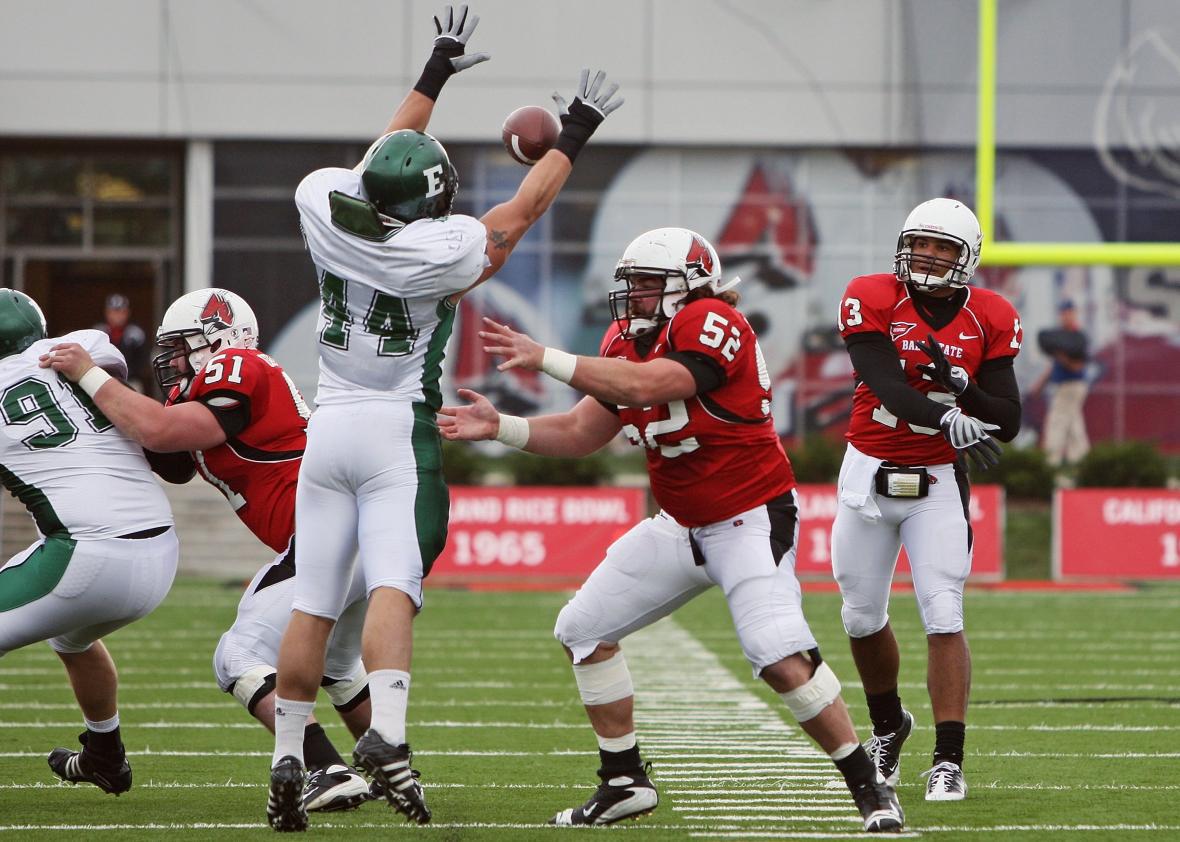Last week, sports site SB Nation published and then took down a 12,000-word profile of convicted rapist Daniel Holtzclaw, a piece which the site’s editorial director later (and accurately) described as “tone-deaf, insensitive to the victims of sexual assault and rape, and wrongheaded in approach and execution.” This week, the article’s author, Jeff Arnold—from whom SB Nation has cut ties—published a note on TwitLonger attempting to explain how he ended up publishing a longform apologia for a man who assaulted at least 13 women under the threat of arrest or violence while on duty as an Oklahoma City police officer.
In the note, Arnold apologizes for “a piece that had massive shortcomings”—but his apology also falls short. That’s because Arnold seems to only half-understand what his error was. “By not spending more time reaching out to victims or their families as a way of accounting for the horrific abuse they suffered, I made a grave mistake. I accept responsibility for that,” he writes. He’s right about that—he should have reached out to Holtzclaw’s victims and given them a chance to comment just as a matter of basic journalism ethics. But Arnold doesn’t acknowledge his bigger mistake, which is that he wrote thousands of words about a rapist without understanding the first thing about rape as a phenomenon or the culture that produces it. From the note:
In writing this piece—which was reviewed and signed off on by at least four editors prior to its publication—I hoped to present a more fully-rounded portrait of Mr. Holtzclaw than had appeared in the press. I hoped to explore the question of what had happened to this once-promising young man. I and my editor at SB Nation hoped to find possible answers as to what could have led to him to become a convicted rapist and sexual predator.
Arnold’s phrasing here is awkward—he’d be better off concerning himself with what Holtzclaw did than with “what had happened to” him—but, to be fair, his purported goal isn’t necessarily out of bounds. Dissecting the back-story of a convicted rapist could, conceivably, help readers understand the cultural and social influences that are associated with rape. The problem is that Arnold didn’t express any interest whatsoever in those influences. Rape does not happen in a vacuum—it is the product of a culture that teaches men that they are entitled to women’s bodies—but Arnold managed to write 12,000 words without acknowledging the larger context in which Holtzclaw committed his crimes. Arnold claims he wanted “to find possible answers as to what could have led to him to become a convicted rapist and sexual predator.” The problem is, he doesn’t seem to have done even an iota of research that might actually have helped him find those answers. (Arnold did quote a psychologist specializing in sex offenses, but in Arnold’s telling, Holtzclaw’s potential sexual disorder sprang out of nowhere.)
Context is crucial no matter what you’re writing about. No responsible science journalist would write about a new report on carbon emissions without summarizing the previous body of research on climate change. No responsible politics writer would profile Donald Trump without describing the political environment that led to his rise. It’s equally unacceptable for a journalist to write about a rapist without describing any of the ample research that’s been done on rape, sexual assault, and toxic masculinity. (It’s particularly egregious for a journalist writing about a football player rapist not to mention research indicating that athletes are more likely to commit sexual assault than non-athletes.)
The fact that Holtzclaw and at least four SB Nation editors did not see this glaringly large hole in Arnold’s piece is a sad reflection of how deeply ingrained false assumptions about rape are—like the notion that well-liked or successful men can’t also be rapists. If the editorial team had done even a modicum of research, they might have realized that Holtzclaw’s case is far from exceptional; after all, virtually every rapist can be described as a “once-promising young man.” If Arnold had turned in a draft as lacking in context on any other subject, his editors wouldn’t have hesitated to kill the piece. If news organizations learn anything from the SB Nation debacle, it should be that they need to treat sexual assault with as much gravity as they’d treat any other subject—and insist on writers who actually do their homework.
